Benin Institutional Diagnostic – Dissemination Workshop
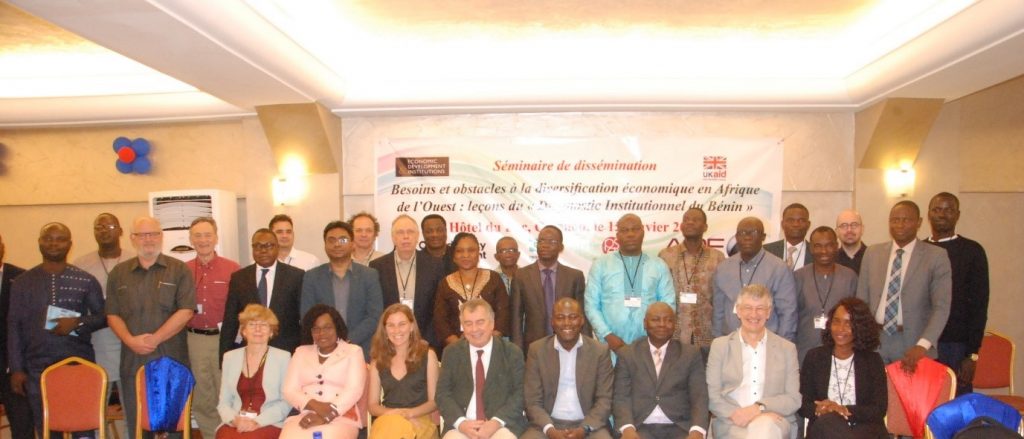
On Wednesday 15 January 2020 in Cotonou, Benin, the EDI programme held a Dissemination Workshop for the Benin Institutional Diagnostic – the fourth and final workshop of the Benin study. Prior to this, engagement workshops were held in Cotonou in August 2017, the concept notes discussion workshop in Brussels in September 2018, and the brainstorming workshop discussing the thematic chapters held in Grand Popo, Benin, in March 2019.
The purpose of the dissemination workshop was:
- to present the Benin Institutional Diagnostic and disseminate its findings;
- to engage with a wide range of stakeholders, many of whom had attended the previous workshops; and
- to promote a discussion on the institutional diagnostic tool in general, its ongoing case studies in Bangladesh and Mozambique; and on the salience of the approach to other countries in the region.
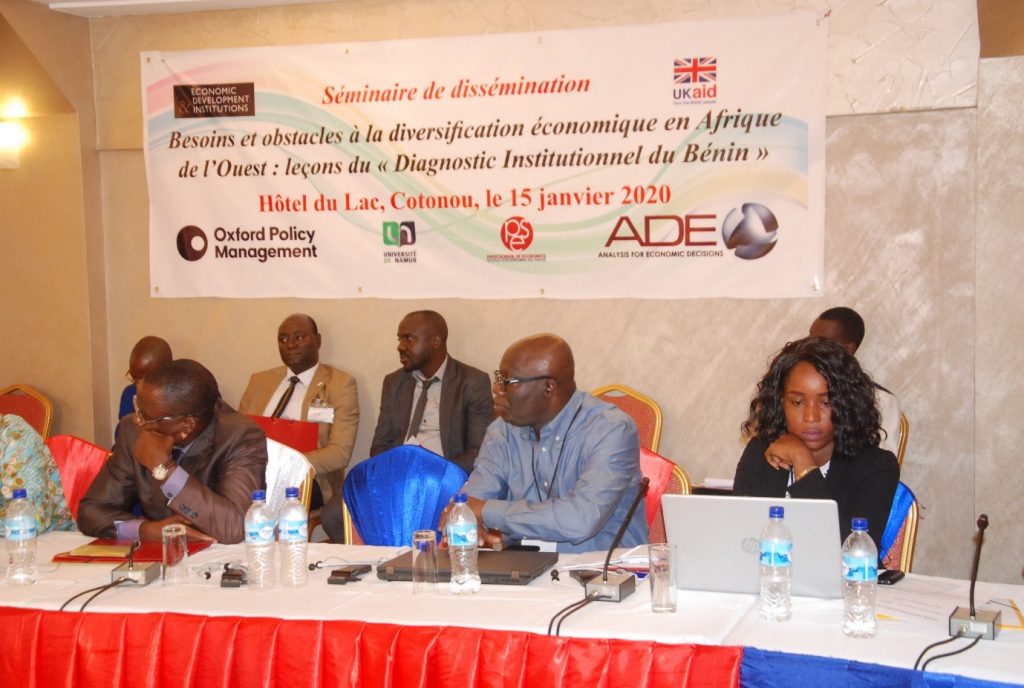
For the latter purpose, the workshop was themed around the issue of limited economic diversification, which is of great relevance not only for Benin but also for many other countries in Africa. The goal here was to demonstrate how an institutional approach could shed new light on this timely issue of economic diversification.
The workshop provided an opportunity to discuss the Benin case but also case studies for a number of countries (including Ghana, Nigeria, Senegal and Togo) as well as a keynote presentation on Sub-Saharan Africa with specific analysis for Ethiopia and Tanzania. The workshop comprised of five sessions, drawing on findings from the Benin diagnostic.
Applying the EDI approach
In the opening session, Professors Bourguignon and Platteau examined the essential features of the EDI approach – its focus on country-specific political economy and institutional features – and the advantages of this over earlier approaches, such as those based on macroeconomic targets or on growth diagnostics. Key to the approach is an appreciation of the subtle ways in which institutions change and interact with one another, and the complex nature of interactions between institutions and economic development; it is not only that institutions matter but how they matter that is core to the EDI programme.
Professor Houssa then explained how this approach had been applied in Benin, through the initial phase of expert opinion surveys and stakeholder engagement, the identification of key institutional areas which were the subject of the deep-dive thematic studies, and the final synthesis of the institutional diagnostic.
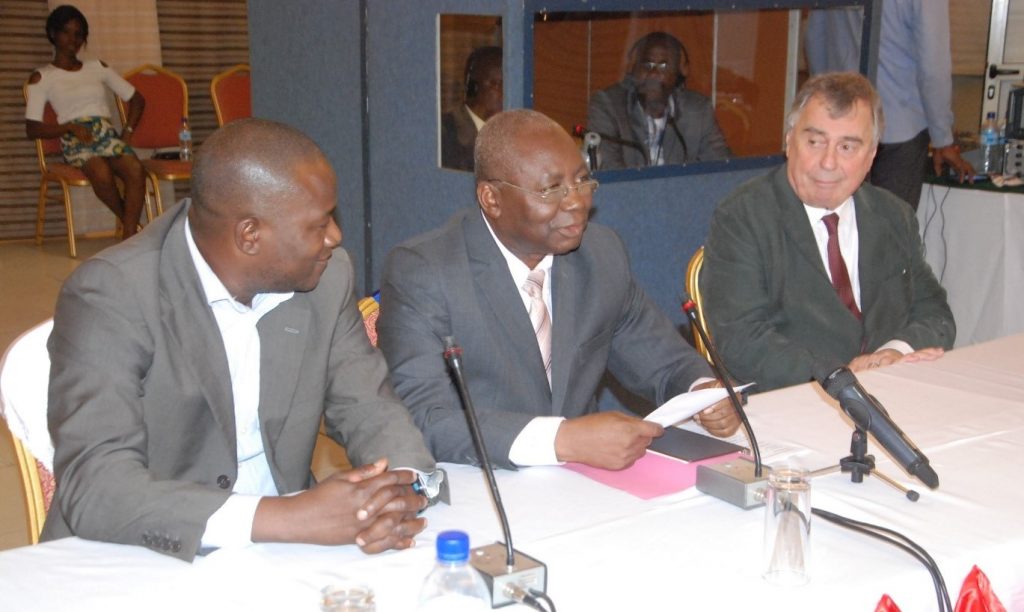
Discussing the challenges
The second session focused on the specific institutional weaknesses that confront Benin and also its neighbour, Nigeria. The relationship between the two countries is highly significant for Benin and the problem of illegal, cross-border trade between the two is the subject of one of the thematic studies of the institutional diagnostic.
EDI Benin principal investigator, Romain Houssa, addressed the weaknesses in regulation, public administration, and excessive government intervention that limit Benin’s attempts to achieve agro-industrial development in the cotton sector and to expand production into other sectors.
From outside EDI, Dr Amaka Metu, from Nnamdi Azikiwe University in Nigeria, gave an analysis of the political economy of diversification in Nigeria. As with the first session, the presentations were followed by in-depth discussion with stakeholders.
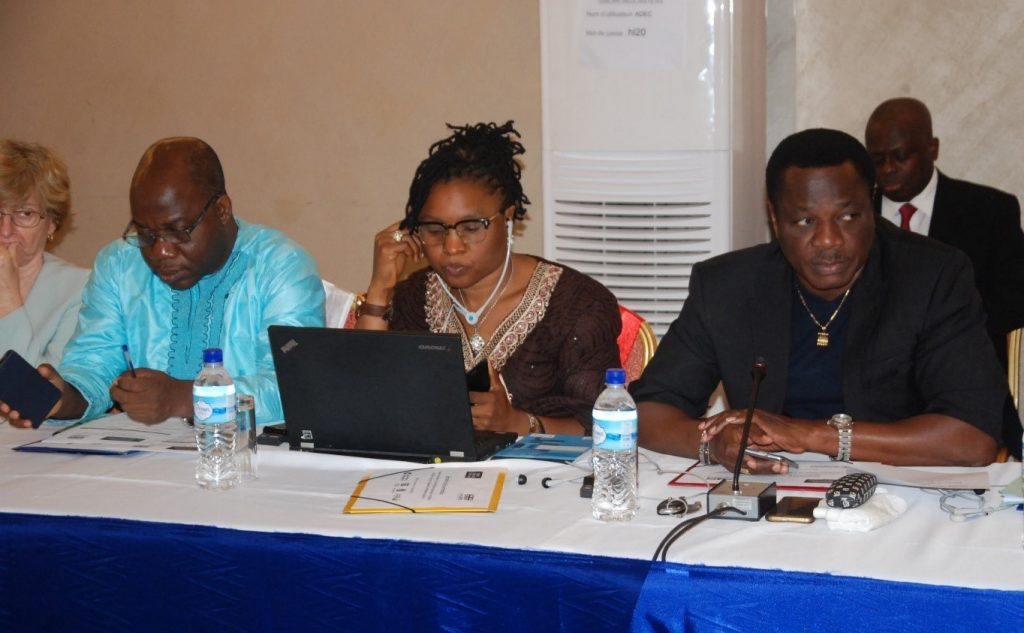
A better understanding
The third session of the workshop was the keynote lecture on institutions and diversification by Professor Margaret Macmillan, of Tufts University and the International Food Policy Research Insitute. The lecture, based on work conducted by Professor Macmillan with Professors Dani Rodrik (EDI Advisory Committee member) and Xinshen Diao, concerned crucial questions regarding structural transformation and labour productivity growth in developing countries. Using innovative methods, the research indicates that recent rapid growth episodes in low income countries (LIC) in Africa and Latin America are following different patterns to those of industrialised led growth seen in Asia.
In the African context, the evidence collected by Macmillan, Diao and Rodrik, using firm level data from Ethiopia and Tanzania, suggests that growth-enhancing structural change is accompanied by low to negative productivity growth, and that growth is driven by an expansion of demand, with employment expansion concentrated in the low productivity informal sector.
Such findings strongly motivate the institutional approach of the EDI programme as they indicate the critical importance of creating an attractive institutional environment for the private sector and of obtaining a better understanding of the institutional conditions which govern the informal sector and its interactions with the formal sector.
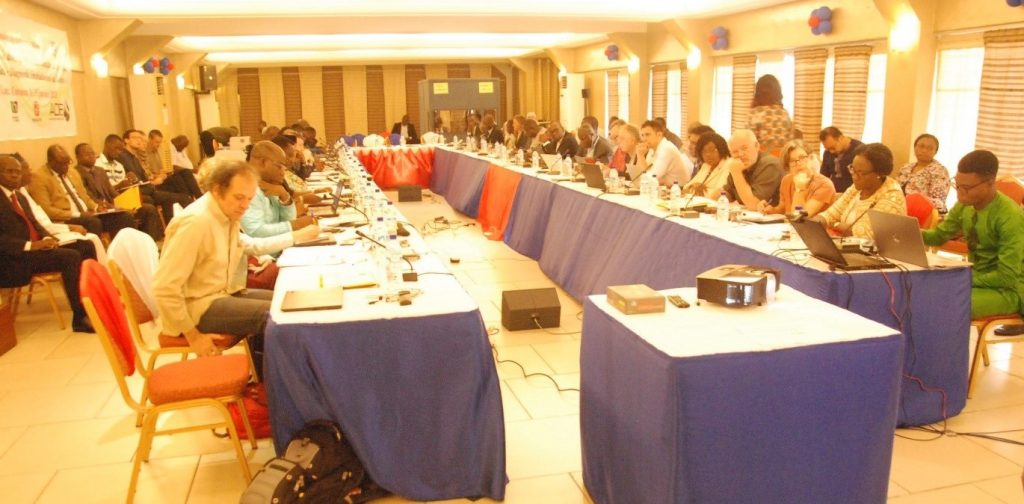
Round table
The final session represented a round table discussion to further engage with stakeholders featuring François Bourguignon, Achile Houssou, Mathias Hounkpe, Roland Riboux, Estache Kotingan, and Jean-Baptiste Elias as panel members and and chaired by two journalists, Virgile Ahouansè and Armel Kago. The discussion addressed the topic of diversification with particular reference to the relationship between politics and business – again, a key theme of the institutional diagnostic and the subject of another of the thematic studies.
Other topics debated included government efforts to combat corruption and promote private sector development as well the fundamental Beninese institutional weakness in electoral campaign financial management.
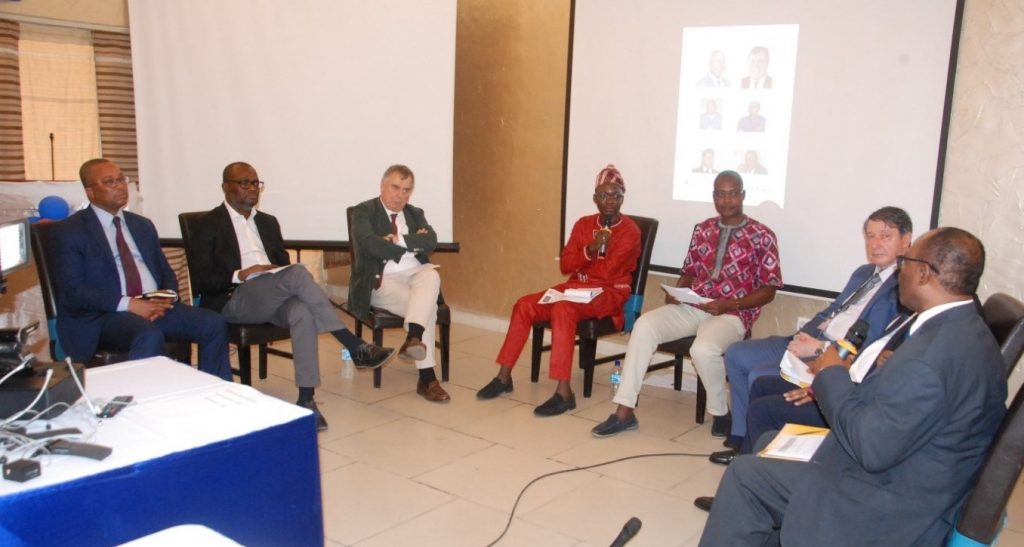
‘Great interest and high-level discussions’
The workshop was attended by a broad range of stakeholders, including international, regional and national academics, policy-makers, the business community, civil society, donors and journalists.
In total there were more than 73 attendees. The EDI team was represented by Research Directors Professor François Bourguignon and Professor Jean-Phillippe Plateau, Principal Investigator Professor Romain Houssa, Professor Paul Reding, Project Manager Dr Tatiana Goetghebuer from EDI Benin, Professor Selim Raihan from EDI Bangladesh, Johnny Flentoe from EDI Mozambique, Dr Umar Salam from OPM, Professor Jean-Marie Baland from EDI RA1 and RA4, and Professor Jan Gunning from EDI RA1 and RA3, the advisors to PI including Dr. Mathias Hounkpe from OSIWA and co-author on chapter 3, Professor John Igue from LARES and discussant for chapter 9, and Professor Sebastien Sotindjo from UAC.
Among other attendees were Mr Roland Riboux CEO of the Company Fludor-Benin, Estache Kotingan, Vice President of the Conseil National du Benin, Dr. Jean-Baptiste Elias President of the National anti-corruption organisation, Dr. Achile Houssou, Chief Economist in the Cabinet of the President.
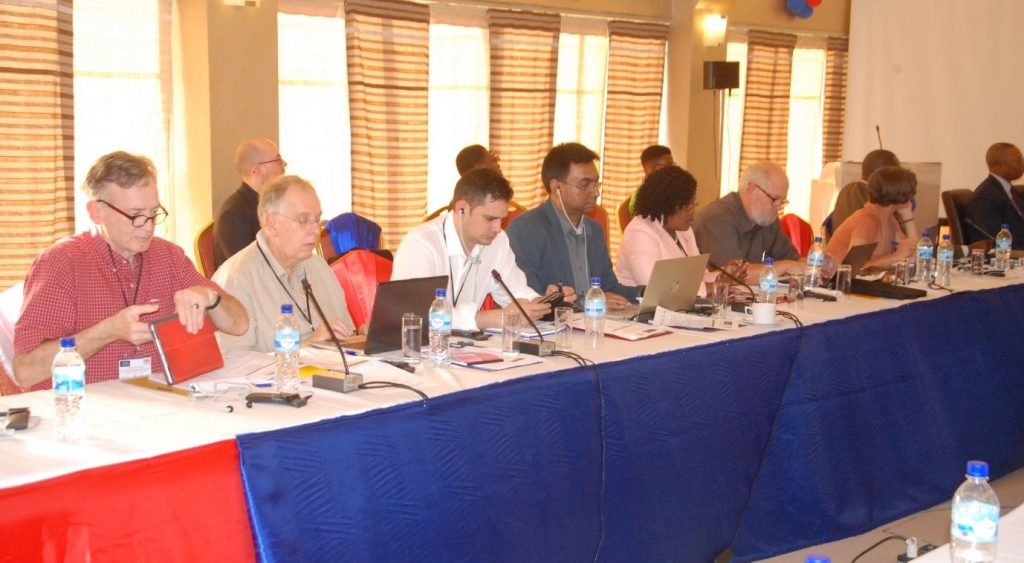
The workshop was officially closed by the representative of the minister of higher education and research, Mr Daton Medenou. He thanked the EDI team for the work being done on Benin, and the great interest and high-level discussions that it brought among policy and decision makers.
A revised version of the Benin Institutional Diagnostic will be released by spring 2020 on the EDI website. A translated version into French will also be made publicly available as there is a high demand on this in Benin and there may also be some potential demand in other francophone African countries.




